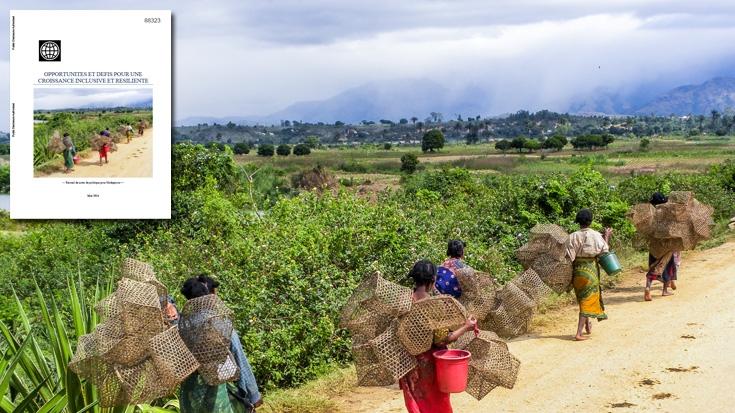Based on a development vision for the coming decade, the World Bank published a collection of eighteen economic policy notes in May 2014. These notes elaborate three major themes: shared growth and prosperity, inclusive service delivery, and governance.
“As the country emerges from a five-year political crisis, it needs get back on the path of growth. An economic recovery will by definition have a positive impact on a high number of people, however for growth to be sustainable and provide benefits for the majority, appropriate policies must be implemented,” says Coralie Gevers, the World Bank Country Manager for Madagascar. “A better distribution of growth dividends can also help reduce the risk of political and social instability,” she added.
If the private sector is to take a lead role as a creator of employment, then the role of the government will be to maintain macroeconomic stability and create an enabling environment for investments through the establishment of an appropriate regulatory framework. The government, in collaboration with the private sector and external partners, also needs to ensure a provision of public goods such as basic social services in the areas of education and health (the indicators for these sectors have considerably deteriorated because of the crisis), a reliable access to electricity (only 14% of the Malagasy population has access to electricity), physical and virtual connectivity (only 2.2% have access to the Internet), and a collection and dissemination of critical information for decision-making. “Here again, we recommend interventions that are beneficial to an important portion of the population, especially the disadvantaged,” underlines Ms. Gevers.
Although Madagascar experienced periods of prosperity, historically, the country has not been able to sustain growth. “Yet it should be able to experience an economic take-off, similar to those of Eastern Asian countries,” says Keiko Kubota, lead economist at the World Bank Madagascar Country Office, who led the production of the policy notes collection. With a just a few adjustments, Madagascar can model itself after their success. “The Asian miracle countries built their success on their abundant and productive labor force, complemented with a rapid accumulation of capital. Madagascar can build on the abundance of its natural resources to obtain sustainable growth.”
If Madagascar seems to have escaped the “natural resource curse” so far, it is partly because its natural resources are relatively diversified. The mining sector represented only 5% of GDP in 2013, lagging far behind agriculture, on which the survival of 80% of the population depends. However, the country is not immune to this curse if solid institutions are not in place. “Good governance will allow the country to best profit from the available resources. Establishing an appropriate regulatory framework will improve business climate, attract investment, and encourage competition,” Ms. Kubota explains. In an effort to help build that framework and enable to Madagascar achieve sustainable and inclusive growth, these policy notes make researched suggestions in the areas of institutions, natural heritage, physical capital, and human capital. This new collection updates and complements the previous one published in June 2010.
